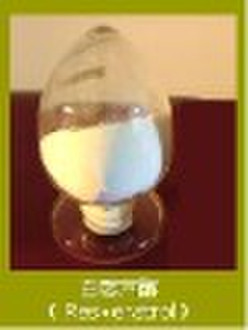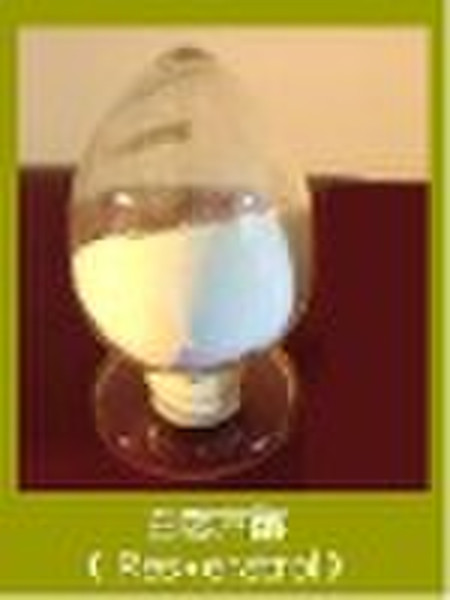Каталог
-
Каталог
- Автомобили и мотоциклы
- Безопасность и защита
- Бизнес
- Бытовая техника
- Бытовая электроника
- Детали машин и услуги по их изготовлению
- Дом и Сад
- Здоровье и медицина
- Игрушки и хобби
- Изделия из металла
- Измерительные и анализирующие приборы и инструменты
- Инструмент
- Красота и личная гигиена
- Мебель
- Мероприятия по охране окружающей среды
- Минералы и металлургия
- Модные аксессуары
- Обувь и аксессуары
- Одежда
- Освещение
- Подарки, сувениры
- Продовольственные товары и напитки
- Промышленное оборудование и техника
- Резина и пластмассы
- Сельское хозяйство
- Специальное оборудование
- Спорт, отдых и досуг
- Сток
- Строительство и недвижимость
- Текстиль и кожа
- Телекоммуникации
- Товары для офиса, учебы. Канцтовары
- Транспорт
- Упаковка и печать
- Химикаты
- Часы, Украшения, Очки
- Чемоданы, сумки
- Электронные компоненты, оборудование, принадлежности
- Электротехническое оборудование и принадлежности
- Энергия
Filters
Search
Ресвератрол-виноградный экстракт кожи

Lucy Fu
Контактное лицо
Основные данные
| Место происхождения | Hunan China (Mainland) |
|---|---|
| Бренд | OHI |
| Номер Модели | OHI-000238 |
| Вид | Экстракт виноградных косточек |
| Форма | Порошок |
Molecular formula: C14H12O3 Molecular weight: 228.24 CAS No.: 501-36-0 Melt Point: 253257 Solubility: Poor solubility in water, soluble in aether, chloroform, ethanol, acetic acid and acetone. Appearance: Fine crystal powder Color: White Specific Rotation [α]: -77.5° (c=0.2, EtOH) Molecular structure: What is resveratrol: Resveratrol (trans-3,5,4'-trihydroxystilbene), belongs to a class of polyphenolic compounds called stilbenes , found largely in the skins of red grapes and root of Polygonum cuspidatum Sieb. et Zucc ( Japanese knotweed), is a component of Ko-jo-kon, an oriental medicine used to treat diseases of the blood vessels, heart and live.. Resveratrol is a fat-soluble compound that occurs in a trans and a cis configuration (see figure 1). Both cis- and trans-resveratrol also occur as glucosides (bound to a glucose molecule). Resveratrol-3-O-beta-glucoside is also called piceid. Sources While present in other plants, such as eucalyptus, spruce, and lily, and in other foods such as mulberries and peanuts, resveratrol's most abundant natural sources are Vitis vinifera, labrusca, and muscadine grapes, Polygonum cuspidatum Sieb. Cardiovascular Effects Many studies suggest that consuming alcohol (especially red wine) may reduce the incidence of coronary heart disease (CHD). Several studies have demonstrated that resveratrol is an effective antioxidant. It inhibits lipid peroxidation of low-density lipoprotein (LDL), prevents the cytotoxicity of oxidized LDL, and protects cells against lipid peroxidation. It is thought that because it contains highly hydrophilic and lipophilic properties, it can provide more effective protection than other well-known antioxidants, such as vitamins C and E. On the other hand, it is less effective than the antioxidants quercetin and epicatechin found in red wine. Reduced platelet aggregation has also been demonstrated in studies on resveratrol, further contributing to its prevention of atherosclerosis. To date, most of the research on resveratrol's antioxidant and anti-platelet properties has been done in vitro (in an artificial environment using test-tube or tissue-culture preparations). Further studies in animals and humans are necessary to determine whether resveratrol supplementation makes sense. Cancer-Related Effects Resveratrol is being studied to see how it affects the initiation, promotion, and progression of cancer. With regard to tumor initiation, it has been shown to act as an antioxidant by inhibiting free radical formation, and as an anti-mutagen in rat models. Resveratrol appears to decrease tumor promotion activity by inhibiting cyclooxygenase-1 (COX-1), an enzyme that converts arachidonic acid to pro-inflammatory substances that stimulate tumor-cell growth . Studies related to progression have found that resveratrol induced human promyelocytic leukemia cell differentiation and inhibited ribonucleotide reductase, an enzyme needed for DNA synthesis in proliferating cells . One appealing characteristic of resveratrol's anti-cancer potential is its minimal toxicity to blood-forming cells . More studies using both cellular and animal models are needed before any such data would be applicable to human use. The Natural Products Association was cited in an article regarding a new dietary supplement that contains resveratrol, a substance researchers believe may help protect human cells from diseases such as cancer and arthritis. Direct Antioxidant Activity In the test tube, resveratrol effectively scavenges (neutralizes) free radicals and other oxidants and inhibits low density lipoprotein (LDL) oxidation . However, there is little evidence that resveratrol is an important antioxidant in vivo . After oral consumption of resveratrol, circulating and intracellular levels of resveratrol in humans are likely to be much lower than that of other important antioxidants, such as vitamin C, vitamin E and glutathione. Moreover, the antioxidant activity of resveratrol metabolites, which comprise most of the circulating resveratrol, may be lower than that of resveratrol. Inhibition of Vascular Smooth Muscle Cell Proliferation The proliferation of vascular smooth muscle cells plays an important role in the progression of atherosclerosis . Resveratrol has been found to inhibit the proliferation of vascular smooth muscle cells in culture . Inhibition of Platelet Aggregation Platelet aggregation is one of the first steps in the formation of a blood clot that can occlude a coronary or cerebral artery, resulting in myocardial infarction or stroke. Resveratrol has been found to inhibit platelet aggregation in vitro. Safety & Adverse Effects Resveratrol is not known to be toxic or cause adverse effects in humans, but there have been few controlled clinical trials. In rats, daily oral administration of trans-resveratrol at doses up to 300 mg/kg of body weight for 4 weeks resulted in no apparent adverse effects . Pregnancy and Lactation The safety of resveratrol-containing supplements during pregnancy and lactation has not been established. Since no safe level of alcohol consumption has been established at any stage of pregnancy, pregnant women should avoid consuming wine as a source of resveratrol. Estrogen-sensitive Cancers Until more is known about the estrogenic activity of resveratrol in humans, women with a history of estrogen-sensitive cancers, such as breast, ovarian and uterine cancers, should avoid resveratrol supplements (see Estrogenic and Anti-estrogenic Activities above). Drug Interactions Anticoagulant and Antiplatelet Drugs Resveratrol has been found to inhibit human platelet aggregation in vitro (42, 84). Theoretically, high intakes of resveratrol (e.g., from supplements) could increase the risk of bleeding when taken with anticoagulant drugs, such as warfarin (Coumadin), and antiplatelet drugs, such as clopidogrel (Plavix), dipyridamole (Persantine), non-steroidal anti-inflamatory drugs (NSAIDs), aspirin and others. Why Organic Herb Inc. Resveratrol: Organic Herb Inc. resveratrol is 100% extracted from natural plant, very safe and more bioactive. Organic Herb Inc. have the most purity resveratrol, Our resveratrol is a 99% purity product tested by HPLC and just one peak on HPLC chromatogram. Trans-resveratrol-3-O-glucoside, Cis-resveratrol, Cis-resveratrol-3-O-glucoside and Emodin almost cant be detected. Our resveratrol has passed the tests of more than 10 USA independent labs. Organic Herb Inc. resveratrol almost have no unpleasant taste compare to other resveratrols and it can be easier to take by oral. Organic Herb Inc. offer resveratrol at a very lower price with a very high and uniform quality. More important --- we have a very large output to meet our customers' big and continual orders.
-
Способы оплаты
Для оплаты товаров и услуг на нашем портале, Вы всегда получаете счет, в котором Вам необходимо самостоятельно указать свои данные.
Мы принимаем к оплате:











